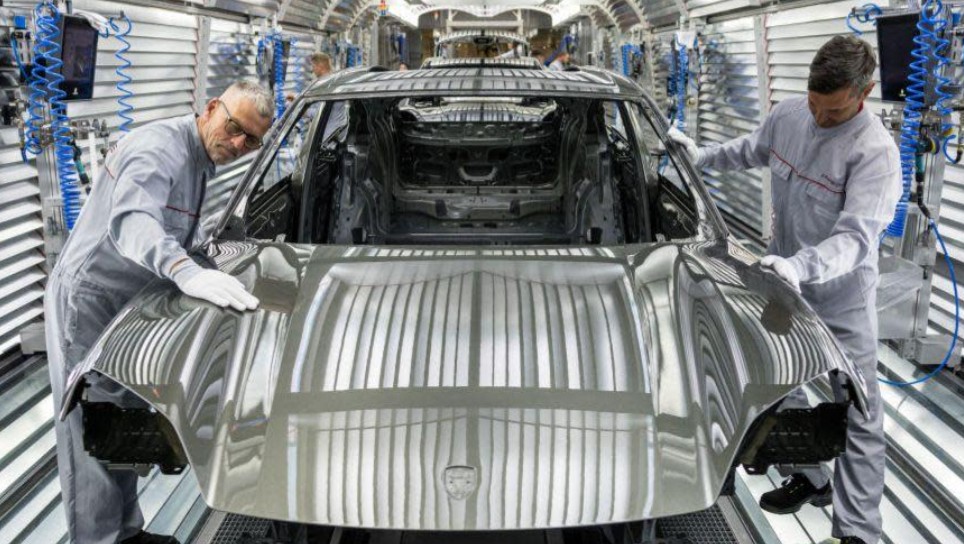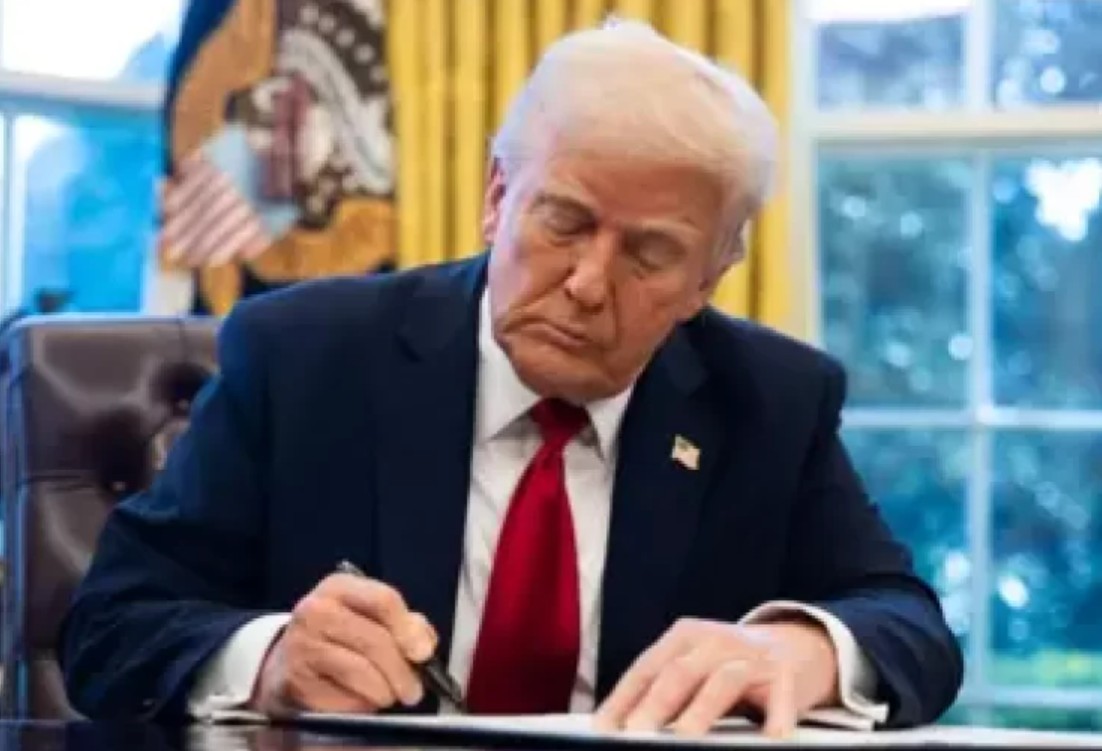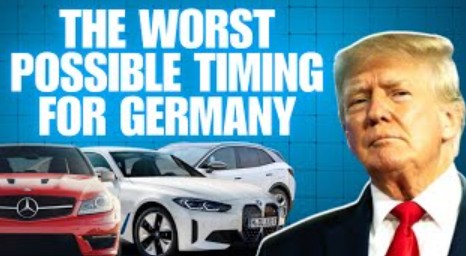Germany has asserted that it “will not yield” and emphasized the necessity for Europe to “react decisively” in response to US President Donald Trump’s imposition of a 25% tariff on imported vehicles and auto parts.
Other significant global economies have pledged to respond in kind, with the President of France labeling the action as “a waste of time” and “illogical,” while Canada has described it as a “direct assault,” and China has accused the United States of breaching international trade regulations.
Shares of automotive manufacturers from Japan to Germany experienced declines. In the United States, General Motors saw a drop of 7%, and Ford’s stock fell by over 2%.

Trump has warned of potentially imposing “much larger” tariffs if Europe collaborates with Canada in what he characterizes as “economic damage” to the United States.
The new 25% tariffs on car imports to the US are set to take effect on April 2, with charges on businesses importing vehicles commencing the following day. Tariffs on auto parts are expected to begin in May or later.
Trump has consistently argued that these tariffs are intended to bolster US manufacturing, asserting that if vehicles are produced domestically, there will be “absolutely no tariff.”
Tariffs are taxes levied on goods brought in from other nations.
While these measures can safeguard local businesses, they also increase expenses for companies that depend on foreign parts.
The companies responsible for importing these goods are required to pay the tax to the government, and they may opt to transfer some or all of the tariff costs to consumers.
Last year, the US imported approximately eight million vehicles, representing around $240 billion in trade and nearly half of total sales.
Mexico stands as the leading supplier of cars to the US, followed by South Korea, Japan, Canada, and Germany.
Analysts from the Anderson Economic Group have projected that tariffs on components sourced solely from Canada and Mexico could result in increased costs ranging from $4,000 to $10,000, depending on the type of vehicle.
German Economy Minister Robert Habeck emphasized the necessity for the European Union to “respond decisively.” He stated, “It must be clear that we will not yield to the US. We need to demonstrate strength and confidence.”
France supported this unified stance, with its finance minister asserting that Europe should retaliate with tariffs on American goods.

During a press conference on Thursday, French President Emmanuel Macron remarked that it was “not the appropriate time” for the US to impose tariffs. He explained, “Imposing tariffs disrupts value chains, creates short-term inflationary pressures, and leads to job losses.” He further commented, “All of this is essentially a waste of time and will generate considerable concern,” urging President Trump to reconsider his position.
Canadian Prime Minister Mark Carney described the tariffs as a “direct assault” on Canada and its automotive sector, noting that it “will adversely affect us,” although discussions regarding trade alternatives were ongoing.
In the UK, the Society of Motor Manufacturers and Traders (SMMT) expressed that the announcement of car tariffs was “not unexpected but still disappointing.”
John Neill, founder of Uniparts, stated that the Trump tariffs were “a boon for the Chinese,” as international consumers would likely turn to Chinese alternatives in response to a trade conflict.
Simultaneously, China accused Trump of breaching World Trade Organization regulations. A spokesperson for the foreign ministry remarked, “There are no victors in a trade war or tariff conflict. No nation has achieved development and prosperity through the imposition of tariffs.”
Japan has issued warnings about a “significant impact” on its economic relationship with the US, with a government spokesperson labeling the measures as “extremely regrettable” and indicating that officials had requested an exemption from the US.
In South Korea, just a day prior to the latest tariff announcement, Hyundai revealed plans to invest $21 billion (£16.3 billion) in the US and establish a new steel plant in Louisiana.
Trump praised the investment as a “clear indication that tariffs are highly effective.”
Bosch, a German company, expressed its confidence in the “long-term potential” of the North American market and affirmed its commitment to further expanding its operations in the region.
The International Monetary Fund indicated that it does not foresee a recession in the United States; however, it cautioned that a trade war could have a “substantial negative impact” on the economic prospects of Canada and Mexico.








